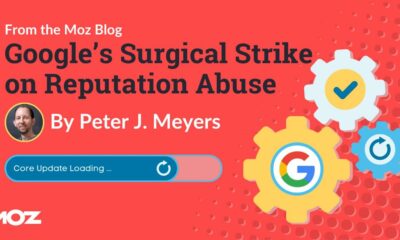MARKETING
Why Marketing Science Is Crucial for Success Today
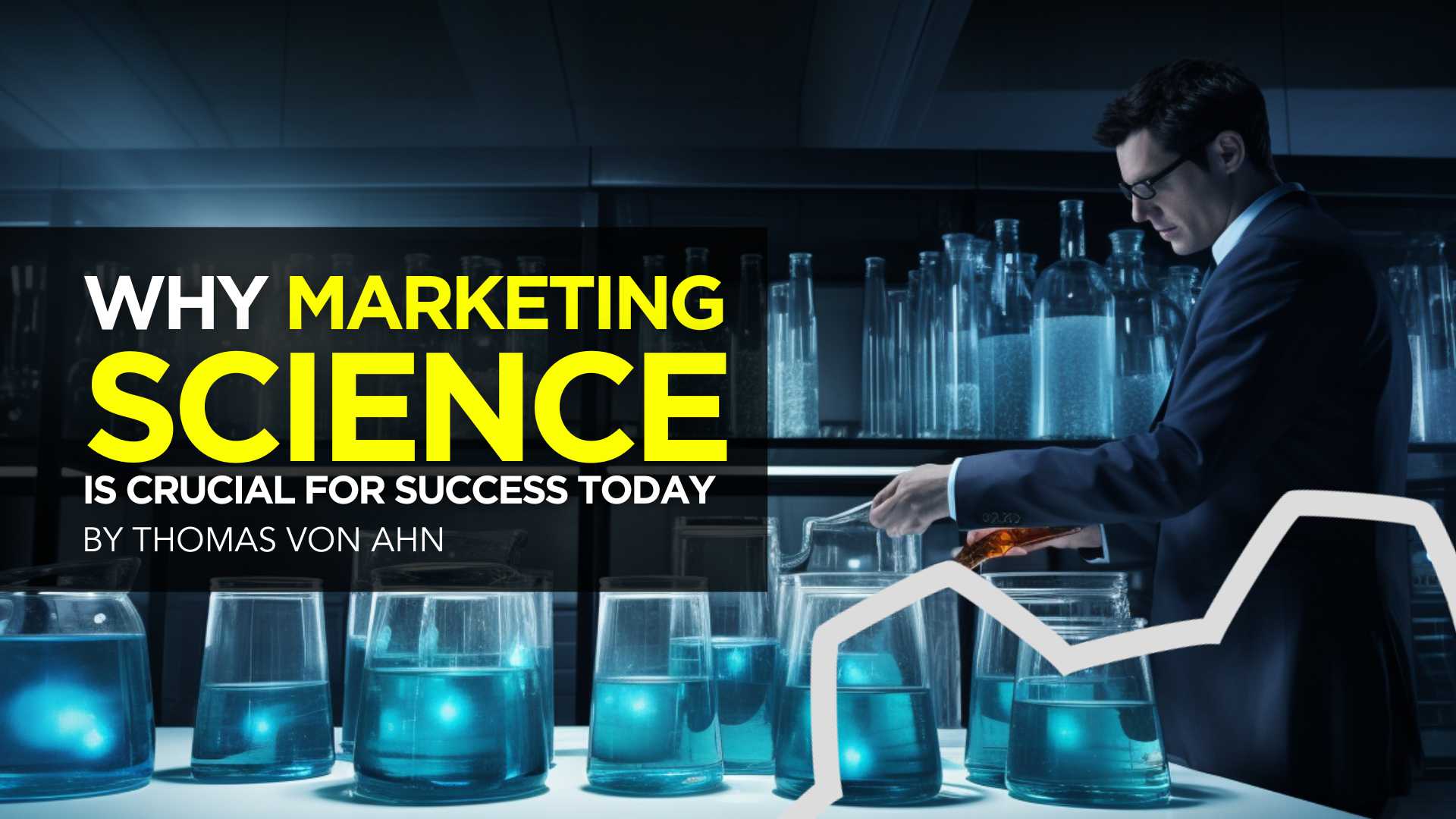
As a marketing pro, you know how tough it can be to capture the attention of potential clients and keep them. There are more than 10,700 digital advertising agencies in the U.S., giving business owners a lot of options. So, if you want to stand out, you need to be more than an expert in digital marketing. You need to be an expert in marketing science.
If you’ve spent years promoting your agency as the go-to for all things digital marketing, this can be a hard pill to swallow. But the fact is the landscape has changed. To be successful, you have to position yourself as a true marketer—who happens to love digital marketing.
Why Digital Marketing Expertise Isn’t Enough
No marketer wants to hear that their digital marketing expertise isn’t enough. I get it. You’ve likely put a lot of effort into studying proven frameworks, staying on top of trends, and even recruiting top talent for your agency. And chances are, that effort has paid off. However, having an agency adept at digital marketing won’t bring you to the pinnacle of success—not without marketing science savvy.
Here’s why…
- Digital marketing has been around for a long time.
Although digital marketing has evolved, it’s not a new concept. The history of digital marketing spans more than 30 years. In fact, the term was introduced back in 1990, around the time the first search engine (Archie) was launched.
In short, everyone knows about it by now. And many agencies are doing it. Unfortunately, that means your digital marketing know-how isn’t anything novel or unique.
- Business owners get digital marketing (for the most part).
Today’s business owners are more knowledgeable about digital marketing. Of course, they don’t necessarily have a clear grasp of it. And there are still plenty of marketing misconceptions out there. But research shows that 47% of small business owners handle their marketing efforts themselves. So, it’s fair to say they get it—more or less.
In most cases, potential clients aren’t impressed by an agency’s ability to handle social media, implement SEO tactics, manage paid advertising, etc. They’ve heard it all before. Even if you can do it better, that may not be reason enough to outsource to your agency.
- Marketers have to work extra hard to earn respect.
DigitalMarketer’s own Mark de Grasse has talked about how marketers don’t get the respect they deserve, and it’s true. As marketers, we have to work harder than other professionals to demonstrate our worth and prove we know what we’re doing. Claiming digital marketing expertise—even if you do have it—just won’t cut it. You need to have broad marketing knowledge and use marketing science to back up your recommendations.
- Tools and tactics change, but the principles of good marketing don’t.
As touched on previously, digital marketing is constantly evolving. New tools and channels are constantly being introduced, resulting in new tactics to adopt. But if you focus too much on what’s changing, you lose sight of what doesn’t. Being on top of every new “shiny object” doesn’t matter much if you can’t follow the principles of good marketing. And that only comes with an understanding of marketing science.
What Do We Mean by Marketing Science?
Many believe that marketing is both an art and a science. And they’re right. But for now, we’re focusing on the latter. After all, it’s the piece of the puzzle your digital marketing agency is likely missing.
There are several different takes on marketing science out there. But when we talk about it, this is what we mean…

You’ve Been Taught SEO ALL WRONG
Become a Certified Search Marketing Specialist and Start Boosting Your Sales by Attracting and Converting Your Ideal Leads Everywhere They Are.
Making Decisions Based on Data—Not Guesswork
Those who embrace marketing science know that data is key. That doesn’t mean a marketer’s knowledge and experience should be tossed aside. However, data should play a critical role in decision-making.
Leveraging data just makes sense.
- It allows us to see what’s working and what’s not.
- It provides valuable insights that help us answer tough questions.
- It ensures we’re making the right decisions for each client.
Science-driven marketers are skilled at compiling, analyzing, and interpreting data from various sources. They apply their findings accordingly, using facts and figures to support their choices. As a result, they can serve their clients better—and with more confidence.
Applying Techniques from Other Disciplines
Digital marketing can be bolstered by other practices. Science-driven marketers know that. They see the value in disciplines like psychology, sociology, economics, and neuroscience (the last of which is combined with marketing to create neuromarketing). That’s why they look at research from those disciplines to see what they can leverage. Then, they apply techniques to make their marketing efforts even stronger.
Conducting Well-Designed Experiments
Experts in marketing science realize that experimentation is essential to improvement. After all, you can’t ensure the best result if you don’t do some testing first. So, they conduct experiments using the scientific method to determine if their initial choice (or hypothesis) is correct.
The most successful marketers tend to be those who are constantly testing. On a granular level, they create different variations of assets, analyze the data, and make improvements as needed. They view every test as a source of valuable information and use it to their clients’ advantage.
Using Technology Wisely
True marketers who understand the science side use technology to their advantage. They don’t get hung up on every new tool that arrives on the scene. Instead, they conduct in-depth research to create a marketing technology stack that benefits them and their clients.
At the most basic level, they find technology to assist with the following:
- Data tracking
- Automation
- Keyword research
- Model building
- Wireframing
Although most marketers understand the importance of marketing technology in serving their clients, scientific ones don’t suffer waste. They only invest in tools that will enhance their efforts. And they strive to get the most out of each one they use.
Taking a Holistic Approach to Marketing
There are many different facets of marketing—social media, paid advertising, SEO, email, copywriting, web design, etc. But science-savvy marketers don’t see them as individual pieces. Instead, they view them as parts of a much larger whole. They know that each one contributes to a business’s online presence.
That’s why they take a holistic approach.
They ensure consistency in all assets across all channels, connecting them for maximum impact. Every part is working together to promote the client’s business. More than that, every team member is doing the same.
How Marketing Science Yields Success for Agencies
When you’re an expert not only in digital marketing but also in marketing science, you position your agency for success. It helps set the stage for being known as unique and smart.
Here’s how…
- You can frame your agency as an authority in the space.
- You can demonstrate your understanding of marketing as a whole.
- You can encourage your team to start thinking about the big picture.
- You become more strategic in marketing for each individual client.
- You can provide proof that your efforts are yielding results.
- You can gain a competitive advantage over tactical marketers.
Ultimately, it doesn’t just make your agency better. It makes your agency appear better to current and potential clients.
Takeaway
These days, digital marketing expertise isn’t enough to stand out from the crowd. If you really want to take your agency to the next level, you need to embrace marketing science. You need to show you have what it takes to build a business, develop a brand, and achieve long-term results. By convincing clients you’re a true marketer who offers digital marketing services, you’ll have an easier time acquiring and retaining them.
MARKETING
Google’s Surgical Strike on Reputation Abuse
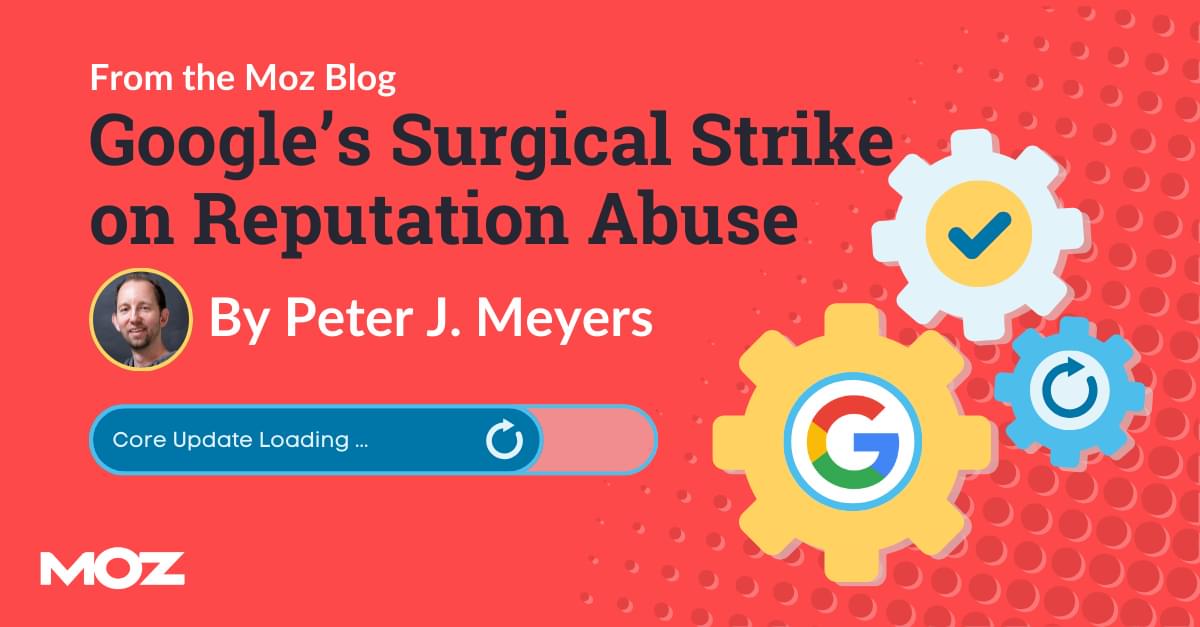
These aren’t easy questions. On the one hand, many of these sites do clearly fit Google’s warning and were using their authority and reputation to rank content that is low-relevance to the main site and its visitors. With any punitive action, though, the problem is that the sites ranking below the penalized sites may not be of any higher quality. Is USA Today’s coupon section less useful than the dedicated coupon sites that will take its place from the perspective of searchers? Probably not, especially since the data comes from similar sources.
There is a legitimate question of trust here — searchers are more likely to trust this content if it’s attached to a major brand. If a site is hosting third-party content, such as a coupon marketplace, then they’re essentially lending their brand and credibility to content that they haven’t vetted. This could be seen as an abuse of trust.
In Google’s eyes, I suspect the problem is that this tactic has just spread too far, and they couldn’t continue to ignore it. Unfortunately for the sites that were hit, the penalties were severe and wiped out impacted content. Regardless of how we feel about the outcome, this was not an empty threat, and SEOs need to take Google’s new guidelines seriously.
MARKETING
18 Events and Conferences for Black Entrepreneurs in 2024

Welcome to Breaking the Blueprint — a blog series that dives into the unique business challenges and opportunities of underrepresented business owners and entrepreneurs. Learn how they’ve grown or scaled their businesses, explored entrepreneurial ventures within their companies, or created side hustles, and how their stories can inspire and inform your own success.
It can feel isolating if you’re the only one in the room who looks like you.
MARKETING
IAB Podcast Upfront highlights rebounding audiences and increased innovation
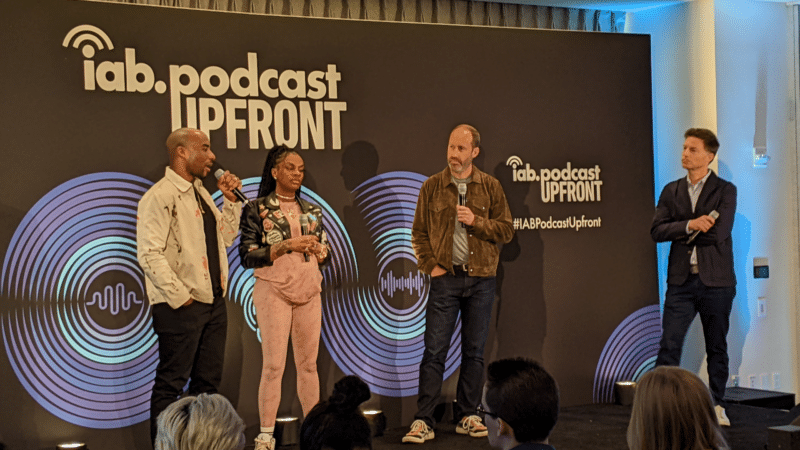
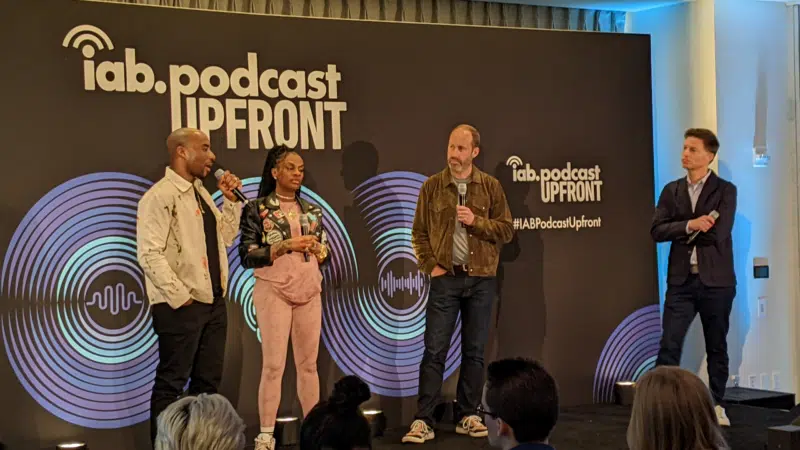
Podcasts are bouncing back from last year’s slowdown with digital audio publishers, tech partners and brands innovating to build deep relationships with listeners.
At the IAB Podcast Upfront in New York this week, hit shows and successful brand placements were lauded. In addition to the excitement generated by stars like Jon Stewart and Charlamagne tha God, the numbers gauging the industry also showed promise.
U.S. podcast revenue is expected to grow 12% to reach $2 billion — up from 5% growth last year — according to a new IAB/PwC study. Podcasts are projected to reach $2.6 billion by 2026.
The growth is fueled by engaging content and the ability to measure its impact. Adtech is stepping in to measure, prove return on spend and manage brand safety in gripping, sometimes contentious, environments.
“As audio continues to evolve and gain traction, you can expect to hear new innovations around data, measurement, attribution and, crucially, about the ability to assess podcasting’s contribution to KPIs in comparison to other channels in the media mix,” said IAB CEO David Cohen, in his opening remarks.
Comedy and sports leading the way
Podcasting’s slowed growth in 2023 was indicative of lower ad budgets overall as advertisers braced for economic headwinds, according to Matt Shapo, director, Media Center for IAB, in his keynote. The drought is largely over. Data from media analytics firm Guideline found podcast gross media spend up 21.7% in Q1 2024 over Q1 2023. Monthly U.S. podcast listeners now number 135 million, averaging 8.3 podcast episodes per week, according to Edison Research.
Comedy overtook sports and news to become the top podcast category, according to the new IAB report, “U.S. Podcast Advertising Revenue Study: 2023 Revenue & 2024-2026 Growth Projects.” Comedy podcasts gained nearly 300 new advertisers in Q4 2023.
Sports defended second place among popular genres in the report. Announcements from the stage largely followed these preferences.
Jon Stewart, who recently returned to “The Daily Show” to host Mondays, announced a new podcast, “The Weekly Show with Jon Stewart,” via video message at the Upfront. The podcast will start next month and is part of Paramount Audio’s roster, which has a strong sports lineup thanks to its association with CBS Sports.
Reaching underserved groups and tastes
IHeartMedia toasted its partnership with radio and TV host Charlamagne tha God. Charlamagne’s The Black Effect is the largest podcast network in the U.S. for and by black creators. Comedian Jess Hilarious spoke about becoming the newest co-host of the long-running “The Breakfast Club” earlier this year, and doing it while pregnant.
The company also announced a new partnership with Hello Sunshine, a media company founded by Oscar-winner Reese Witherspoon. One resulting podcast, “The Bright Side,” is hosted by journalists Danielle Robay and Simone Boyce. The inspiration for the show was to tell positive stories as a counterweight to negativity in the culture.
With such a large population listening to podcasts, advertisers can now benefit from reaching specific groups catered to by fine-tuned creators and topics. As the top U.S. audio network, iHeartMedia touted its reach of 276 million broadcast listeners.
Connecting advertisers with the right audience
Through its acquisition of technology, including audio adtech company Triton Digital in 2021, as well as data partnerships, iHeartMedia claims a targetable audience of 34 million podcast listeners through its podcast network, and a broader audio audience of 226 million for advertisers, using first- and third-party data.
“A more diverse audience is tuning in, creating more opportunities for more genres to reach consumers — from true crime to business to history to science and culture, there is content for everyone,” Cohen said.
The IAB study found that the top individual advertiser categories in 2023 were Arts, Entertainment and Media (14%), Financial Services (13%), CPG (12%) and Retail (11%). The largest segment of advertisers was Other (27%), which means many podcast advertisers have distinct products and services and are looking to connect with similarly personalized content.
Acast, the top global podcast network, founded in Stockholm a decade ago, boasts 125,000 shows and 400 million monthly listeners. The company acquired podcast database Podchaser in 2022 to gain insights on 4.5 million podcasts (at the time) with over 1.7 billion data points.
Measurement and brand safety
Technology is catching up to the sheer volume of content in the digital audio space. Measurement company Adelaide developed its standard unit of attention, the AU, to predict how effective ad placements will be in an “apples to apples” way across channels. This method is used by The Coca-Cola Company, NBA and AB InBev, among other big advertisers.
In a study with National Public Media, which includes NPR radio and popular podcasts like the “Tiny Desk” concert series, Adelaide found that NPR, on average, scored 10% higher than Adelaide’s Podcast AU Benchmarks, correlating to full-funnel outcomes. NPR listeners weren’t just clicking through to advertisers’ sites, they were considering making a purchase.
Advertisers can also get deep insights on ad effectiveness through Wondery’s premium podcasts — the company was acquired by Amazon in 2020. Ads on its podcasts can now be managed through the Amazon DSP, and measurement of purchases resulting from ads will soon be available.
The podcast landscape is growing rapidly, and advertisers are understandably concerned about involving their brands with potentially controversial content. AI company Seekr develops large language models (LLMs) to analyze online content, including the context around what’s being said on a podcast. It offers a civility rating that determines if a podcast mentioning “shootings,” for instance, is speaking responsibly and civilly about the topic. In doing so, Seekr adds a layer of confidence for advertisers who would otherwise pass over an opportunity to reach an engaged audience on a topic that means a lot to them. Seekr recently partnered with ad agency Oxford Road to bring more confidence to clients.
“When we move beyond the top 100 podcasts, it becomes infinitely more challenging for these long tails of podcasts to be discovered and monetized,” said Pat LaCroix, EVP, strategic partnerships at Seekr. “Media has a trust problem. We’re living in a time of content fragmentation, political polarization and misinformation. This is all leading to a complex and challenging environment for brands to navigate, especially in a channel where brand safety tools have been in the infancy stage.”
Dig deeper: 10 top marketing podcasts for 2024
-

 PPC7 days ago
PPC7 days agoHow the TikTok Algorithm Works in 2024 (+9 Ways to Go Viral)
-

 SEO6 days ago
SEO6 days agoHow to Use Keywords for SEO: The Complete Beginner’s Guide
-

 MARKETING6 days ago
MARKETING6 days agoHow To Protect Your People and Brand
-
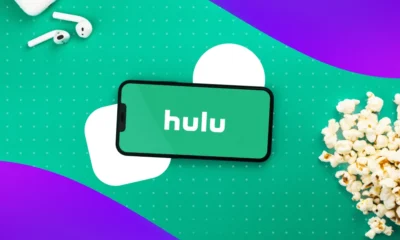
 MARKETING4 days ago
MARKETING4 days agoAdvertising on Hulu: Ad Formats, Examples & Tips
-

 MARKETING6 days ago
MARKETING6 days agoThe Ultimate Guide to Email Marketing
-

 MARKETING5 days ago
MARKETING5 days agoUpdates to data build service for better developer experiences
-

 MARKETING1 day ago
MARKETING1 day ago18 Events and Conferences for Black Entrepreneurs in 2024
-

 SEO7 days ago
SEO7 days agoAutomate Multi-Site Reporting With Google Sheets And GSC API



